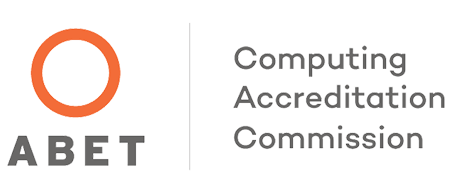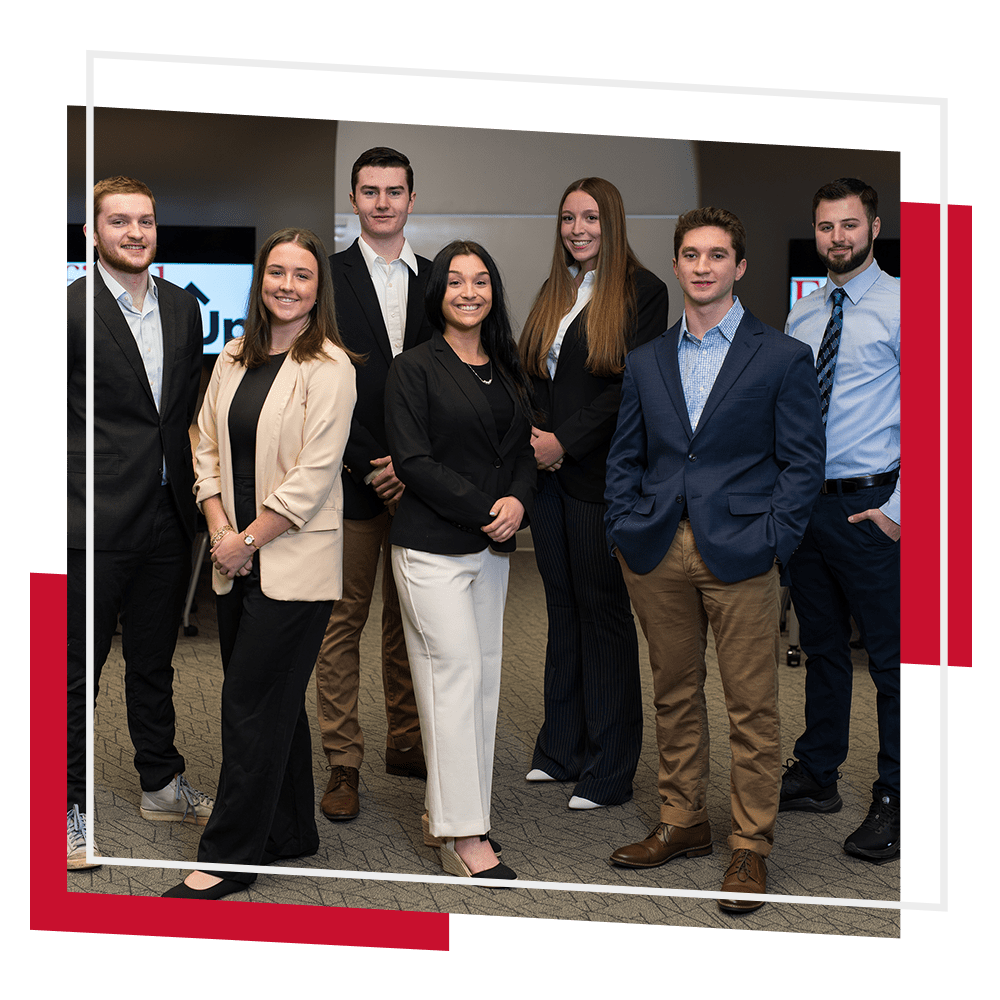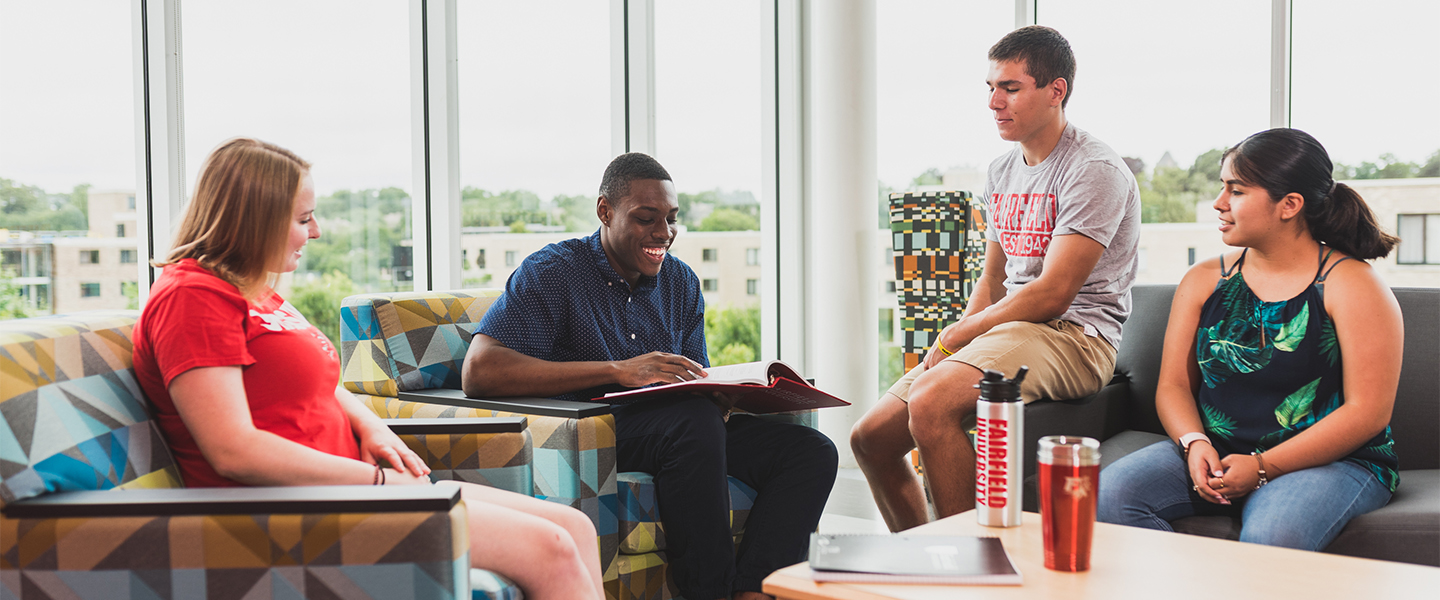Analyze
Analyze a complex computing problem and to apply principles of computing and other relevant disciplines to identify solutions.
As computational thinking and processes permeate our daily lives, computer science has the ability to revolutionize our understanding of our natural world, our industries, and even ourselves. A degree in Computer Science from Fairfield University provides both marketable skills and intellectual breadth that can be applied to any career choice.
Fairfield’s computer science curriculum encompasses a truly unique combination of experiences:
At Fairfield, undergraduate students can pursue multiple degree options as follows: a BS degree in computer science, a BA degree in computer science, or a minor in computer science.

Chair and Professor, Computer Science
x 2568
P: (203) 254-4100
F: (203) 254-4199
admis@fairfield.edu

Fairfield University’s four-year Bachelor of Science program in Computer Science is accredited by the Computing Accreditation Commission of ABET, https://www.abet.org, under the General Criteria and the Computer Science and Similarly Named Computing Programs Criteria.
The Program Educational Objectives are broad statements that describe what alumni do within a few years following graduation. The Computer Science and Engineering program is committed to graduating engineers who within a few years of their graduation are expected to:
1
Analyze
Analyze a complex computing problem and to apply principles of computing and other relevant disciplines to identify solutions.
2
Design & Develop
Design, implement, and evaluate a computing-based solution to meet a given set of computing requirements in the context of the program’s discipline.
3
Communicate
Communicate effectively in a variety of professional contexts.
4
Recognize
Recognize professional responsibilities and make informed judgments in computing practice based on legal and ethical principles.
5
Cooperate & Collaborate
Function effectively as a member or leader of a team engaged in activities appropriate to the program’s discipline.
6
Produce Solutions
Apply computer science theory and software development fundamentals to produce computing-based solutions.
| Fall 2017 Enrollment: | 2017 Graduates: |
| 31 | 2 |
| Fall 2018 Enrollment | 2018 Graduates |
| 46 | 11 |
| Fall 2019 Enrollment | 2019 Graduates |
| 77 | 2 |
| Fall 2020 Enrollment | 2020 Graduates |
| 105 | 6 |
| Fall 2021 Enrollment | 2021 Graduates |
| 103 | 18 |
| Fall 2022 Enrollment | 2022 Graduates |
| 91 | 22 |
| Fall 2023 Enrollment | 2023 Graduates |
| 87 | 26 |
The BS in Computer Science program supports the mission of the University by providing a curriculum focusing on the most advanced practices of computer science through continued assessment by employers, alumni, faculty and students. The Computer Science BS program is preparing for accreditation by the Computing Accreditation Commission of ABET.
The BA in Computer Science program supports the mission of the University by providing a flexible curriculum focusing on the advanced practices of computer science grounded in a strong liberal arts core curriculum. Students have the flexibility to choose a wider range of elective courses, which can also allow them to pursue a variety of minors or even double majors.
To earn a double major in Computer Science and Mathematics, students will prepare a custom plan of study.
Required Courses
| Digital Design I and Digital Design I Lab |
| Introduction to Computing (placement based) OR Fundamentals of Engineering |
| Fundamentals of Programming |
| Programming Workshop and Programming Workshop Lab |
| Data Structures and Data Structures Lab |
| Calculus I for Chemistry, Engineering, and Physics Majors |
| Calculus II for Chemistry, Engineering, and Physics Majors |
| Discrete Mathematics |
| Two (2) Mathematics electives |
| Computer Systems Architecture |
| Computer Science Sophomore Clinic |
| Web Development |
| Introduction to Cybersecurity |
| Design and Analysis of Algorithms |
| Computer Science Junior Clinic I |
| Computer Science Junior Clinic II |
| Theory of Programming Languages |
| Senior Design Project I |
| Senior Design Project II |
| Software Engineering Methods |
| Software Design Methods |
| Five (5) Computer Science and Engineering Major electives |
| Introduction to Computing |
| Fundamentals of Programming |
| Programming Workshop and Programming Workshop Lab |
| Data Structures and Data Structures Lab |
| Computer Science Sophomore Clinic |
| Web Development |
| Computer Science Junior Clinic I |
| Computer Science Junior Clinic II |
| Theory of Programming Languages |
| Software Engineering Methods |
| Software Design Methods |
| Four (4) Major electives |
| Introduction to Computing |
| Fundamentals of Programming |
| Programming Workshop and Programming Workshop Lab |
| Data Structures and Data Structures Lab |
| Two (2) Computer Science electives |
Visit our our academic catalog for detailed course descriptions and more information.

StartUp Showcase Team: Golden Guardian Solutions Helps Prevent Elderly-Targeted Internet Fraud
Computer science majors Sarah Leonetti ’24 and Nicole Perugini '24 were assigned a class project to develop a business idea they could bring to market. The idea the group selected evolved into what the team will pitch as Golden Guardian Solutions (GGS) on Tuesday, April 18, 2023, at the Fairfield StartUp Showcase. GGS is a web app dedicated to providing family members who could be targets of cyber fraud with peace of mind through data traffic analysis.
Five-Year Dual-Degree BS/MS Program in Computer Science & Software Engineering
A five-year program is offered in Software Engineering at Fairfield's School of Engineering, leading to a Bachelor of Science and Master of Science dual degree. This program embraces the educational objectives of the BS undergraduate program in computer science, as well as those of the graduate program in Software Engineering. It emphasizes experiential learning in terms of industrial internships following the sophomore year, and a final capstone project that guides students through a process of design and innovation at the level of a professional engineer. Graduates of the program master the knowledge and tools they need to create the next generation of software solutions to ever more complex technological and societal problems.
Check out the Course Catalog for the Software Engineering Five-Year Dual Degree Bachelor and Master of Science Program requirements and course descriptions.
Five-Year Dual-Degree BA/MS Program in Computer Science & Data Science
A five-year program is offered in data science at Fairfield's School of Engineering, leading to a bachelor of arts and master of science dual degree. This program embraces the educational objectives of the BA undergraduate program in Computer science, as well as those of the graduate program in data science. It emphasizes experiential learning in terms of industrial internships following the sophomore year, and a final capstone project that guides students through a process of design and innovation at the level of a professional engineer. Graduates of the program master the knowledge and tools they need to create the next generation of data science solutions to ever more complex technological and societal problems.
Check out the Course Catalog for the Data Science Five-Year Dual Degree Bachelor and Master of Science Program requirements and course descriptions.

As a Jesuit, Catholic university, Fairfield is dedicated to diversity and inclusion; to radical hospitality in service of racial, social, and economic justice.
The School of Engineering aims to graduate students with leading-edge engineering skills and additional competencies in oral and written communications and critical thinking who possess:
Fairfield's engineering programs graduate liberally educated engineers equipped with knowledge and experiential skills so they may successfully enter the mainstream of industrial/manufacturing activity, education, or government service, or to continue with postgraduate studies. Our close interactions with industry enable employment of our graduates in all sectors of industry, government, and academe.
Learn how Fairfield's Career Services can support your post-graduate goals, and how our tight-knit alumni network can build career and mentoring opportunities that last a lifetime.
There are two types of internships students can attain: internships for academic credit and non-credit internships. Internships for academic credit must be approved by faculty and are connected to an academic course. Some departments have lists of available for-credit internships and some may approve internships that you find on your own as well.
We invite you to view the School of Engineering Update, a year in review of School of Engineering News.
The School of Engineering faculty are a community of leading-edge scholars who are dedicated to their students, research, and teach with passion. If you have an interest in engineering — no matter the focus — our exceptional faculty will get you on the path to success.